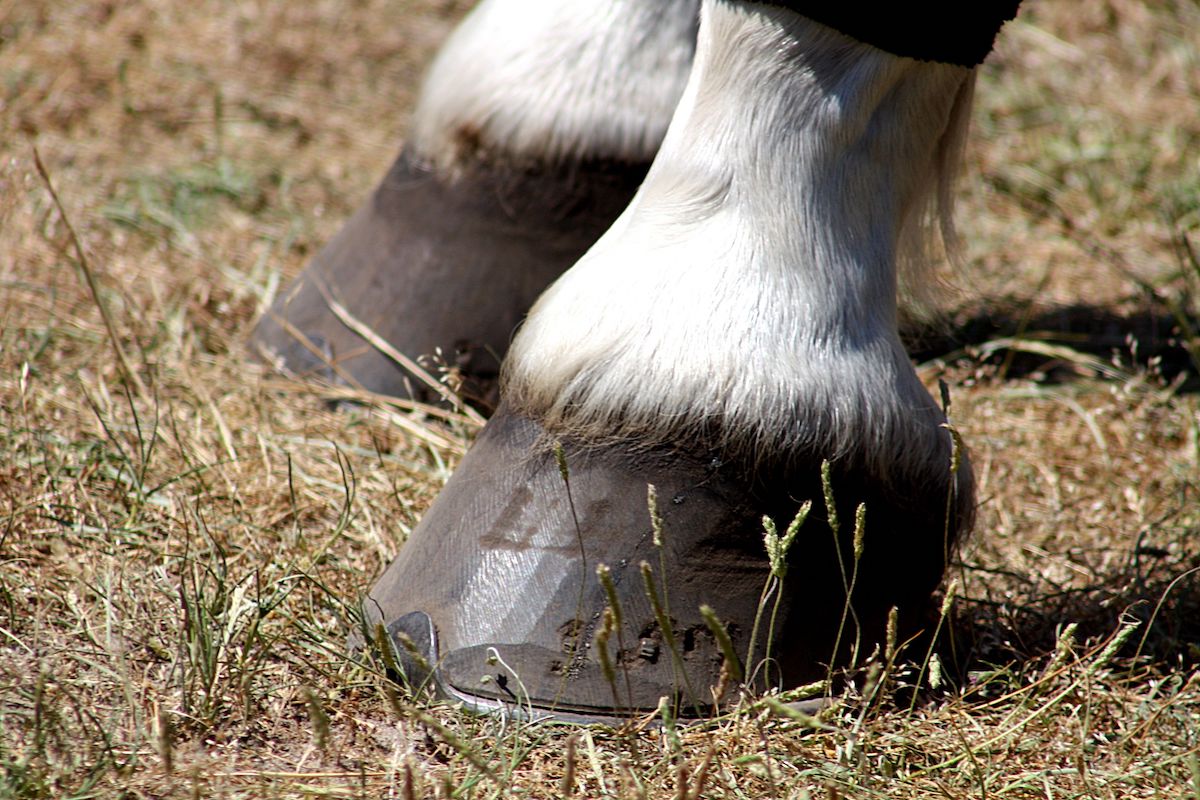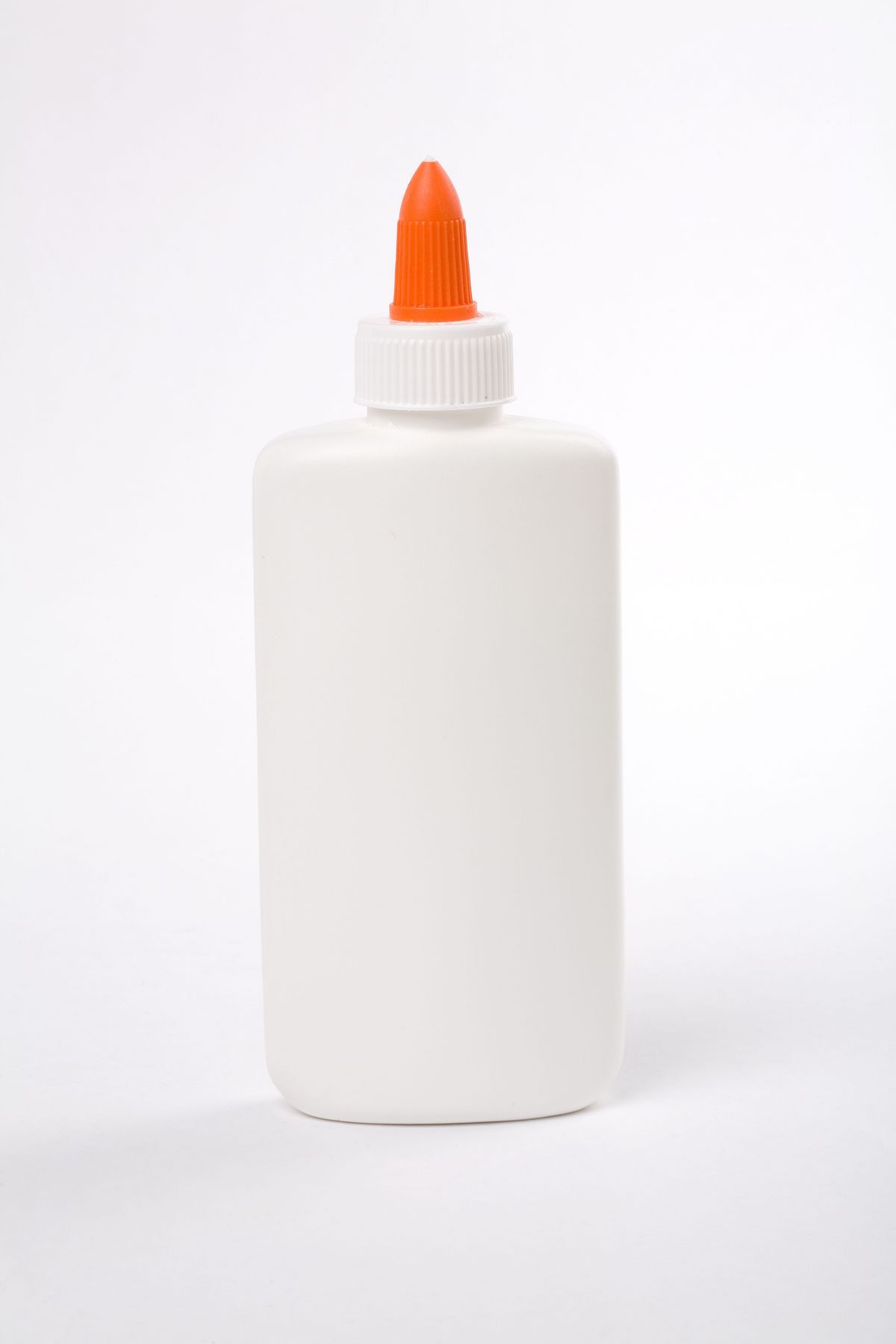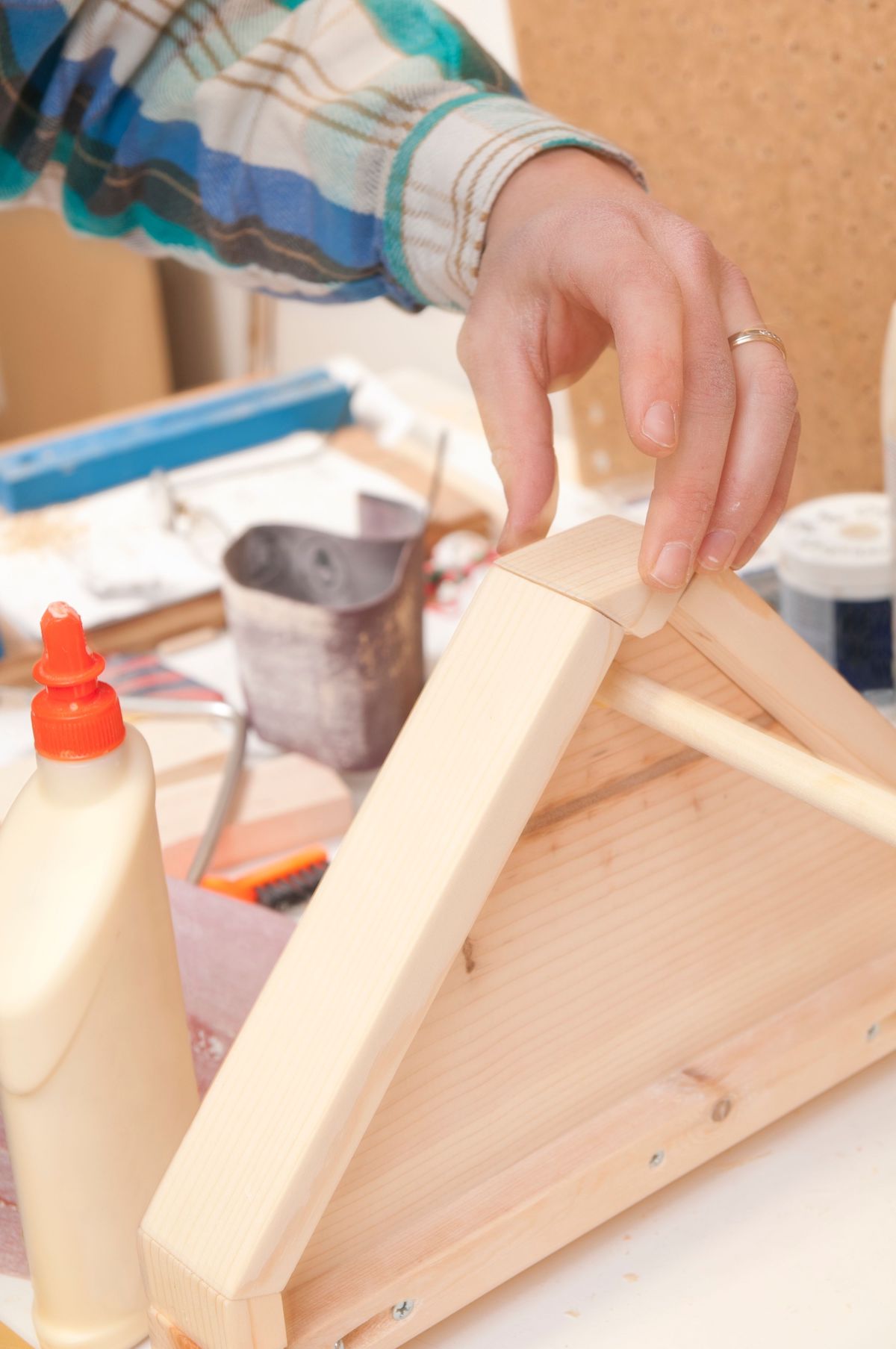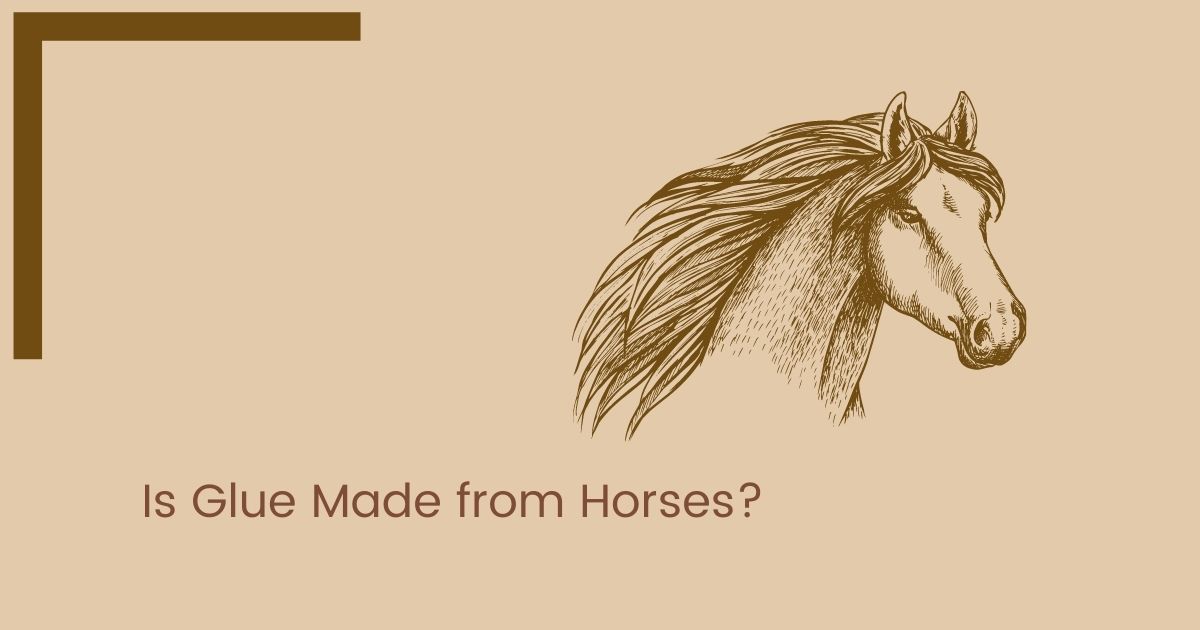Horses and Glue
Is glue made from horses? This is a question that needs our attention. Glue is made from collagen, which comes from animal parts, especially horse hooves and bones. Horses are considered because, just like other large animals, they contain lots of collagen.
Collagen is a key ingredient in most animal glues. It is usually made into gelatin that is sticky when wet and hard when it has dried up.
Is Glue Made from Horses?
For thousands of years now, glue manufacturers have been using different materials to produce glue. We need to ask ourselves; do they use horses to make glue? Many manufacturers make glue from horses and other big animals like pigs and cattle.
However, the glue factory prefers using collagen from horses to make animal glue. This is because the horse is a big and muscular animal, and most of its parts are used in making the glue.
From the horse, manufacturers produce several types of glue, including hide and hoof glue. These types of glue from the horse are very useful in different industries in the world.
For instance, bookbinders find glue made from horses effective in their industry. This is because the glue allows the binders plenty of time to work. Horse glue, popular for many years, has in the recent past been out of fashion.
Synthetic glues have become more advanced as they are readily available and easy to use. It is important to know what brand of glue is made from horses.

Why Are Horses Used for Glue?
Glue is made from horses for several reasons. First, horses are big animals with huge muscles. This characteristic makes them have a lot of collagen. Second, it is made into gelatin that is sticky when wet but becomes hard when it dries.
To add to that, there are many advantages of glue made from horses. To begin with, when you use horse glue, you can always apply a new layer of glue on top of an old layer. Secondly, if there is an irregular fit in an object, you can easily correct that by heating the glue. Finally, horse glue produces a tight joint that does not bend easily.
Clearly, you can only enjoy the above advantages when using animal glue and, in this case, horse glue. Other types of glue do not work the same as horse glue.

Are We Still Actively Killing Horses to Make Glue?
Are horses used to make glue? Many years ago, horses were killed to make glue. Even today, some glue factories might kill horses to produce adhesives. However, this act is wrong, and many parts of the world consider it unlawful. Historically, many people take horses to the glue factory when they die or are very sick.
The glue factory horse does this to use the fine materials inside the dead or very sick animals. If anything, the glue factory helps people understand that every part of the horse is treasured.
How Are Horses Transformed into Glue?
How do you make glue? Transformation of horses into the bond is a process that involves hydrolysis of the collagen from skins, bones, tendons, and other tissues similar to gelatin. This results in protein colloid glues that form a molecular bond with the glued object.
An animal glue, including the horse glue, is an adhesive created by prolonged boiling of animal connective tissue.
What Kind of Glue is Made from Horses?
Are you wondering what glue is made from horses? There are several types of glue that manufacturers around the world make from horses. One of them is the hide glue. What is hide glue? Hide glue is a type of animal glue made from the skin of the horse. You may be wondering how to make hide glue.
Hide glue is made from horses’ skin, and it comes in different forms like granules, flakes, or flat sheets. This type of glue is mainly used in woodworking. It is known for its indefinite shelf life if you keep it dry. You use it by dissolving in water, heating, and applying it when it is warm. For example, you can use hide glue for gap filling.
You will note that hide glue joints are reversible and repairable. Joints that you have recently glued can release quickly with the application of heat and steam. Also, hide glue functions as its own clamp. Once it begins to gel, it pulls the joint together.
However, hide glue has its disadvantages: thermal limitations, short open time, and vulnerability to micro-organisms.
The second type of glue made from horses is hoof glue. This is a type of horse glue that is made by boiling down hooves. It is partially hydrolyzed keratin. You can use hoof glue to stiffen bowstrings, adhere fabric to wood, stiffen the fabric, seal glass window frames and ceramic containers, in cabinetry, and many other woodworking projects.
The hoof glue has a special property of sticking two wooden pieces together without it being visible. However, hoof glue is not waterproof, and it can be dissolved by water, so moisture or high humidity can affect it.
Which Animals are Used to Produce Glue?
The most commonly used animals for producing glue are horses, pigs, cows, rabbits, and fish. The collagen used in making glue is taken from the animals’ skins, hides, muscles, bones, connective tissues, and feet. You can collect these parts from animal farms, slaughterhouses, meat packing companies, and tanneries.
You should note that there is a lot of glue that is produced from fish and rabbits. For instance, fish glue has been in use for many years now. It is effective in using glass, ceramics, leather, and even metallic objects.
Glue manufacturers use animals, as mentioned above because their skin and bones contain collagen. This is important as it helps in the binding of materials together.
What is Horse Glue Used for Today?
In the world today, you can use horse glue in a number of ways. For example, horse glue is an adhesive that you can use for coating and sizing, decorating composition ornaments, putting antiques back together, glass art, woodworking, assembling pipe organs, and bookbinding.
You realize that the uses of horse glue are pretty specific. It is used in applications such as lutherie, piano repairs, and pipe organ building. This means that most glue we use today is produced from artificial materials, and therefore we do not need to kill horses to get bonds.

What Else are Dead Horses Used for?
In the recent past, horses are no longer taken to the glue factory as before. Instead, they are taken to the slaughterhouse for the harvesting of their valuable meat. They are a source of meat for humans in countries where it is allowed and for big cats at zoos.
To add to that, the protein in horses’ hooves is also used in Jell-O and gummy bears. This explains their texture. Gummy bears are made from dead horses’ bones.
How to Make Glue Without Using Horses
Today, very few manufacturers still use horses in making glue. Instead, they have found other ways of manufacturing glue using artificial materials. For example, many glue factories in the world produce glue known as polyvinyl acetate (PVA).
This is a multipurpose glue that is not made from horses. However, it is reliable and can be used on a good number of surfaces perfectly.
Polyvinyl acetate (PVA) is a cost-effective glue, and you can work with it quickly. It is also not affected by changes in temperatures like animal glue. As a result, you can use it comfortably without the fear of it melting away when the temperatures become very high.
It can stick two pieces permanently without leaving any signs to show that the sticking has been done.
Is Elmer’s Glue Made from Horses?
Is Elmer’s glue vegan? This is a question that needs our attention. Nowadays, Elmer’s glue is not made from horses like in the past. The question is, where does glue come from? Today, Elmer’s glue is manufactured from chemicals. These chemicals are sourced from natural raw materials like gas and other petroleum products.
These products are used to make glue by following a specific formula and ingredients. Elmer’s glue has many advantages. It does not emit strong fumes and can therefore be used indoors. It is also affordable and can be wiped away with water.
Some PVA glues have adhesive properties–others are water-resistant while others are waterproof.
In summary, horse glue and other animal glue have been used in different parts of the world for many years now. They have been effective, but the coming up of polyvinyl acetate (PVA) has made horse glue obsolete.
They are no longer in use as people prefer polyvinyl acetate (PVA) as it is more potent, durable, and easy to use–not to mention it takes the use of animals out of the equation.
